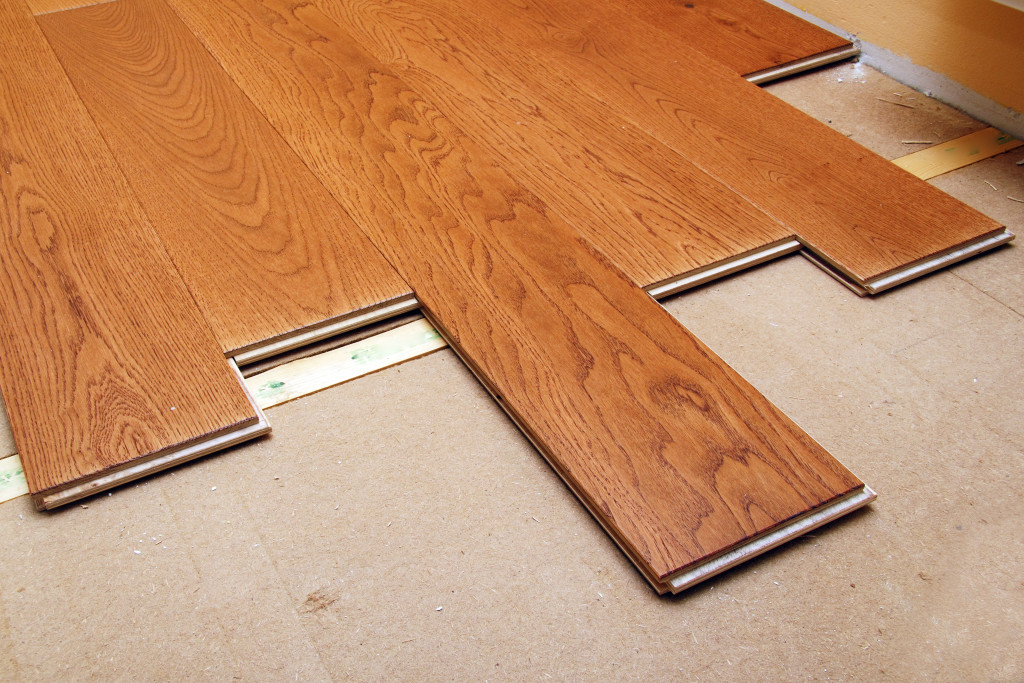- Embrace energy efficiency by conducting an energy audit, sealing air leaks, upgrading appliances, and using LED lighting.
- Harness solar power to save money on energy bills, reduce your carbon footprint, and increase the value of your property.
- Conserve water through simple fixes, low-flow fixtures, rainwater collection, and landscaping with native plants.
- Opt for sustainable materials when renovating or redecorating your home to reduce environmental impact.
- Invest in a deep winter greenhouse to grow organic produce year-round while staying energy-efficient.
Making your home more eco-friendly is not only beneficial for the environment but also for your own well-being and savings. By adopting sustainable practices and incorporating green technologies, you can significantly reduce your carbon footprint and create a healthier living environment. This guide will explore five tips to help you make your home more eco-friendly. By implementing these strategies, you can contribute to a greener future while enjoying the benefits of an energy-efficient and sustainable home.
1. Embrace Energy Efficiency
One of the most effective ways to make your home eco-friendly is by improving its energy efficiency. Start by conducting an energy audit to identify areas of improvement. Look for air leaks around windows and doors, and seal them with weatherstripping or caulk. Install energy-efficient windows and ensure proper insulation to minimize heat loss or gain.
Upgrade your appliances to energy-efficient models with a high Energy Star rating. LED light bulbs are also an excellent choice as they consume less energy and have a longer lifespan than traditional incandescent bulbs. Consider installing a programmable thermostat to regulate temperature settings and reduce energy waste.
2. Harness Solar Power

Harnessing the sun’s power is an effective way to make your home more eco-friendly. Consult with a professional solar installer to determine the optimal system size for your energy needs. Additionally, explore government incentives and tax credits available in your area to offset the installation costs.
Here are the benefits of solar power:
Save Money
By utilizing solar power, you can save money on your energy bills. Photovoltaic (PV) technology enables you to generate electricity from the sun’s rays at no extra cost and use it to power your home. Solar panels also come with a 25-year warranty for long-term savings.
Reduce Your Carbon Footprint
Solar energy is clean and renewable, meaning it does not emit any pollutants or greenhouse gases into the atmosphere. Installing solar panels helps reduce your carbon footprint and contributes to a greener environment for future generations.
Increase Your Home’s Value
By going solar, you can increase the value of your property as it becomes more attractive to potential buyers. Additionally, you may be eligible for special incentives such as tax credits or rebates, which can further increase your home’s value.
Reduce Your Dependence on Fossil Fuels
By switching to solar energy, you can reduce your dependence on finite resources, such as fossil fuels. Solar panels allow you to generate electricity from the sun’s rays and make your home more self-sufficient. Solar technology is constantly improving, so your system will remain efficient for years.
3. Conserve Water
Conserving water is another crucial aspect of creating an eco-friendly home. Implementing water-saving strategies not only helps the environment but also reduces your water bills. Start by fixing leaky faucets and toilets, as they can waste significant water over time.
Consider installing low-flow fixtures and aerators in your sinks and showers to reduce water consumption without compromising functionality. Collect rainwater by installing a rain barrel, which can be used for watering plants and gardens. Furthermore, landscaping with native plants requiring less water can significantly reduce outdoor water usage.
4. Opt for Sustainable Materials

When renovating or redecorating your home, choose sustainable materials with a lower environmental impact. Look for products made from recycled or upcycled materials, such as reclaimed wood flooring or countertops made from recycled glass. Avoid using materials containing harmful chemicals, such as volatile organic compounds (VOCs), which can negatively affect indoor air quality.
Consider eco-friendly alternatives for furniture and upholstery, such as bamboo or cork, which are renewable and biodegradable. Opt for low-VOC or zero-VOC paints to reduce air pollution and minimize health risks when painting your home. By consciously selecting sustainable materials, you can create a healthier living environment and support environmentally responsible practices.
5. Invest in a Deep Winter Greenhouse
If you’re looking for a way to make your home and garden more eco-friendly, consider investing in a high-quality cold-weather greenhouse. A deep winter greenhouse is an energy-efficient and sustainable gardening solution that allows you to grow plants year-round. It uses passive solar heating and natural air circulation to maintain optimal growing conditions during the colder months without artificial heaters.
Additionally, it can help reduce your energy consumption by providing natural insulation and reducing the need for air conditioning in the summer. With a deep winter greenhouse, you can grow organic produce all year round while staying energy-efficient and contributing to a greener future.
In Summary
By implementing these five tips, you can significantly enhance the eco-friendliness of your home. Embrace energy efficiency by sealing air leaks, upgrading appliances, and using LED lighting. Harness the sun’s power by installing solar panels to generate clean and renewable energy. Conserve water through simple fixes, low-flow fixtures, and rainwater collection. Opt for sustainable materials when renovating or redecorating your home to reduce environmental impact. Finally, consider investing in a greenhouse to grow your own organic produce and promote sustainable living. Making your home more eco-friendly is a rewarding journey that benefits the environment and overall well-being. Start taking small steps today and contribute to a greener future for future generations.


